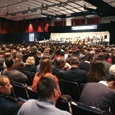Editor’s Note: As part of our celebration of 70 years of the Midwest Clinic, we asked some convention veterans a simple question: What is your favorite Midwest memory. We received so many thoughtful responses that we expect to run some additional memories in December. Readers can share their own stories at editor@theinstrumentalist.com
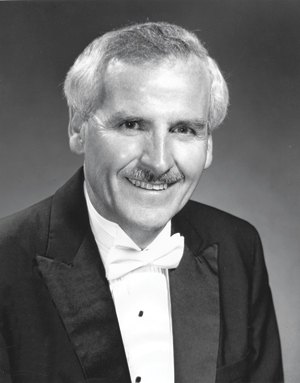 Ray Cramer, Past President of the Midwest Clinic and Emeritus Professor, Indiana University Jacobs School of Music
Ray Cramer, Past President of the Midwest Clinic and Emeritus Professor, Indiana University Jacobs School of Music
I felt a nudge to contribute since my involvement with the Midwest Clinic goes back to my first visit there as an undergraduate music major at Western Illinois University in 1960. In the years since I believe I have only missed four conventions, and only because I was teaching in Japan for the fall and could not return until the Midwest was over. Such is the case for this December as I am once again in Japan and will miss the 70th convention. I even delayed our marriage by a week in December of 1963 because I told my bride-to-be that I did not want to miss the Midwest Clinic if our marriage date was before Christmas. So for our honeymoon, for all two days, we drove to Chicago so I could share with her the Sherman House Hotel where the clinic was held and take her to my favorite restaurant right next the hotel – “The Ham n’ Egger.” Many clinics and concerts were revisited over the Ham and Egg Skillet.
To share in a few lines my greatest Midwest memories would take more than a few paragraphs. First and foremost in my mind would be so many fantastic performances I heard over these 50 plus years that it would make for a very long list. Perhaps some of my earliest performances would have to be with the Cass Tech Band under Harry Begian. It brought to my ears a level of performance by young high school musicians I had previously thought impossible. Believe me, it set a new standard of excellence in my ears and heart that has not been forgotten to this day. The educational insights presented by clinicians over the years were terrific aids to me and all involved in working with young musicians. The performances, clinics, and exhibitors present every year continue to engage and instruct young teachers in the art of their profession.
To be invited as a member of the Midwest Board of Directors in 1990 was something I had never envisioned. When I was contacted by Barbara Buehlman about this possibility, I was surprised but delighted to be able to respond that I would be honored to become a member of the Board of Directors. A few years later, following the passing of both John Paynter and Barbara Buehlman, I was honored again by being asked to serve as President and humbly accepted and served for the next 13 years.
Following the death of our daughter in 2009 I made the decision to step away from the board to meet family obligations. I had already served as president five years longer than what we allow a U.S. President to serve our country. It was a pleasure to work with so many bright, educationally driven colleagues on the board for nearly 20 years. The success of the Midwest is a tribute to the dedication and loyalty to all the members, past and present, who have faithfully served the Board of Directors.
Thinking back to performances that stand out in my mind, I must add one in which I was a performer. As a graduate student at the University of Iowa, the Symphonic Band under Frederick C. Ebbs, Director of Bands at the University of Iowa, was invited to perform at the Sherman House during the clinic when the CBDNA was held in conjunction with the Midwest Band and Orchestra Clinic. I remember how hard we worked on this program where the highlight of the program was, I believe, the first American performance of Dionysiaques by Florent Schmitt. The band used the full instrumentation of the original score; there were over 100 performers in the band to cover it. I remember looking out on the audience and sitting in the front row were all of the icons in the profession. Think of who those might have been in 1962 and you will most likely come up with every Director of Bands in the Big 10 along with other conductors and composers from across the United States. Following the performance of the Schmitt, those gentlemen were the first on their feet in a standing ovation.
I was not able to take any of my three high school bands that I conducted to the Midwest Clinic. However, the last high school band that I conducted, Parma Senior High School, had performed at the clinic the year before I took that position. I well remember them opening the concert with what was perhaps the first high school performance of Emblems by Aaron Copland. It was most impressive. I was only at Parma for one year as I became the Assistant Director of Bands at Indiana University the following year. I would never have guessed that when I accepted that position that I would spend the next 36 years at that great institution, serving the last 24 as Director of Bands.
Three other experiences stand out in my mind because I was fortunate enough to be involved on the podium for those three performances. The first was when the Musashino Academy of Music Wind Ensemble performed there in 1995 under the direction of Frank Bencriscutto and me. The second performance was with my Indiana University Wind Ensemble in 2003. That performance featured guest soloist Joseph Alessi in the premiere performance of Visions of Light for Trombone and Wind Ensemble by Eric Ewazen. The third time was in 2006 when the Musashino Academy of Music Wind Ensemble performed at the Midwest Clinic for the second time. That program featured Chris Martin, principal trumpet of the Chicago Symphony at that time. These performances played to a packed hall receiving warm and enthusiastic responses throughout the concerts. Those memories will last a long time not only in my mind but those of the students involved in the ensembles. For their hard work and talent I will be forever grateful to have been part of those experiences.
The Midwest Clinic has been and will continue to be a place of renewal, musical refreshment, and collegiality. There is no other clinic in the world like this one and that’s why the attendance keeps growing each year. Congratulations to the Midwest Clinic on your 70th Anniversary. I personally look forward to being present at the 75th. Best wishes for continued success for the next 70!
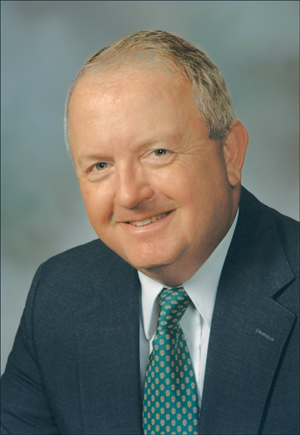 James Barnes, Professor Emeritus, University of Kansas
James Barnes, Professor Emeritus, University of Kansas
I think this year will be my 40th or 41st trip to Chicago for Midwest. I have so many fond memories of this convention, both personal things and performances over the years, that it is difficult to single out any one, so here are a few anecdotes.
In 1972, Bob Foster came to KU as Director of Bands. He recommended that I go to Midwest to make personal connections with publication editors, which, by the way, ended up being a very good move.
We took the Lone Star Limited to Chicago from Lawrence. This was my first opportunity to meet Vince DiNino and his wife. They had taken the train from Austin, Texas, where DiNino had served so long as the Director of the Longhorn Band. We stayed at the old Bismarck Hotel, just down the street from the Sherman House, which was where the convention was still held. As I recall, it cost $30 a night, and we thought we were being robbed.
If you think Midwest was crowded at the Hilton, you should have seen it at the Sherman House. Holy smoke, you could barely move! I may be wrong about this, but, as I recall, 1972 was the last year that the convention was held at the Sherman House. Someone told me that right after Midwest, they tore the old hotel down and built a parking lot on that site. That wouldn’t have been hard to do: I think you could have kicked one brick out of the old Sherman House wall and then the whole thing would have collapsed.
I remember that one day I went to lunch at a little sandwich shop next to the Bismarck. I don’t remember what I ordered, but I asked for a Dr. Pepper. The waitress looked over her glasses in disgust and then said, “This is Chicaaago, honey; we don’t have Doctah Peppah in Chicaaago!” (Sure enough, in those days Dr. Pepper was still a regional brand of soft drink.)
About the third or fourth time I went to Midwest, I saw Dick Bennett, a KU grad and regional salesman for H.N. White (King was a separate brand of instruments back then.) He gave me an extra ticket for the Chicago Symphony. I’ll never forget that program: Mendelssohn’s Fingal’s Cave, Bartòk’s First Piano Concerto (with Daniel Barenboim as soloist) and Richard Strauss’s Don Quixote, all conducted by Sir Georg Solti. In any person’s life, there are a few concerts that one never forgets. This was one I will always remember.
Several years later, I was taking the elevator down to the Ballroom Level at the Hilton when the door opened at some floor and a small, dapper man dressed in white tie and tails walked on to the elevator. I was so stunned that it took me a few moments to gather the courage to scoot over and say, “You’re Morton Gould, and I may never get another chance to shake your hand!” Of course, over the years, I did get to see him on numerous occasions. We became friends. He was a wonderful, witty man, certainly one of the finest band composers who has ever lived.
I remember so many overpriced breakfasts at the Hilton, where I visited from time to time with Frederick Fennell, Vaclav Nelhybel, Harry Begian, Alfred Reed, Frank Erickson, Francis McBeth, Victor Zajec, and my old friend and fellow Jayhawk, Claude T. Smith. I think back fondly on those times since none of these great men are with us anymore. I was the new kid on the block back then; now, I’m an old geezer who is just trying to hang on.
As usual, I’m taking Amtrak up to Chicago in December. I wouldn’t miss it for the world. It’s always so nice to see old friends and former students and also to meet bright young people who are just getting into the music business.To realize that I have been to more than half of the Midwest conventions ever held is a tad daunting. I don’t know whether to smile with pride or become depressed due to my advanced age.
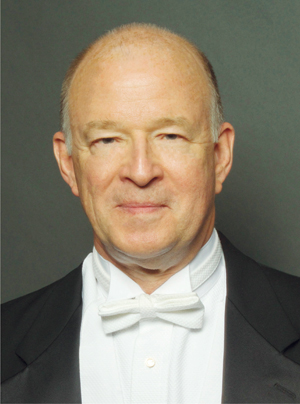 Terry Austin, Virginia Commonwealth University
Terry Austin, Virginia Commonwealth University
I first attended the Midwest Clinic in 1981. I was a doctoral student at the University of Wisconsin, and I drove down from Madison with a friend. As many people find out during their first Midwest, I knew very few people initially. Since that time I have only missed the clinic twice – once because I was moving to a new house, and the second time because I was in Japan guest conducting. I have many Midwest memories, and they are all good ones. It is difficult to isolate one memory especially since there are so many different kinds of memories. Some are simply all of the many friends I have made throughout the years. Some are from presenting clinics, and guest conducting. Some are from the many meetings that I have attended over the years. Some are from concerts and sessions. All have left their imprint on me in one way or another.
I think that an experience from last year may be the one that stands out the most. I was honored to be asked, along with Jay Gephart, to moderate a session entitled “A Conversation With Ray Cramer”. Ray has played, and continues to play, a huge role in my life as well as Jay’s. So it was very humbling to be in that role. We planned the session to draw the best memories from him but also to honor his many achievements by asking specific questions about his distinguished career. The room filled quickly and it was obvious that this was going to be a friendly and well-received session. Clearly there was a lot of love for Ray Cramer. It was really enjoyable looking at the faces of the people in attendance as Ray shared stories and experiences. The time went by far too quickly and the session was soon over.
Shortly after we finished I asked his wife Molly if she and Ray were planning to attend the CBDNA meeting that was being held immediately afterwards. She said, “No I don’t think we were planning to attend that. Should we?” I was almost certain that Ray was going to be presented with the CBDNA Lifetime Achievement Award at the meeting, and I was surprised that they did not know to attend. As it turned out they had not seen any of the emails asking for them to be there. I told her I thought that it might be a good idea to go to the meeting. I was delighted that he went because his award was announced in the last part of the meeting, and he got to be there for it. Having the chance to be part of two different events in a short span of time at Midwest that honored my friend and mentor is a very special Midwest memory for me.
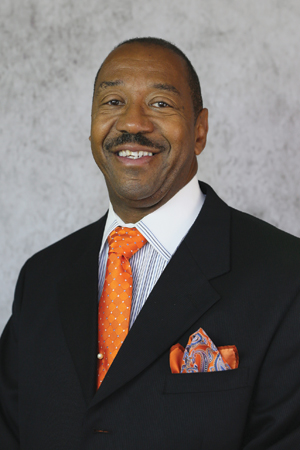 Quincy Hilliard, University of Louisiana at Lafayette
Quincy Hilliard, University of Louisiana at Lafayette
My greatest memory of Midwest was meeting Francis McBeth. His work Masque inspired me to become a composer. My composition teacher, Jared Spears, introduced me to the work and spoke of Francis often in our private lessons. I knew that they were great friends. The first time I ever saw Francis, he was walking down one of the aisles at the convention visiting other booths and talking to people. I decided to stalk him. After about the third aisle, I was afraid that he might see me and think that I was trying to rob him so I stopped. I was so excited, that I called home to tell my wife that I saw Mr. McBeth. She asked, “Did you talk to him?” I said no, he would not have time for me. He is too important. She said, “Why don’t you go up and introduce yourself?” I was so excited that I did not sleep that night. I was planning how I would approach him. Finally, the next day I went up and introduce myself and told him that I was one of Jared Spears’s students. He laughed and said, “I am sorry you did not have a better composition teacher, young man.” He talked to me for about an hour, and every time I saw him after that, he would come up and talk with me. On one occasion when I was in Arkansas, he invited me to his home and showed me his woodworking workshop and his classic car collection. He was a great composer and an awesome person. I will never forget the talks we had about composers, conductors, and composition.
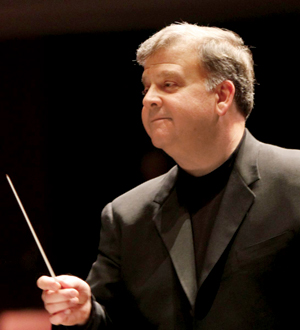 Mark Camphouse, composer and conductor, George Mason University
Mark Camphouse, composer and conductor, George Mason University
Perfection in musical performance is something that is very rarely achieved. But the performance of Jim Curnow’s excellent arrangement of John Williams’s Liberty Fanfare by the Fukuoka Technical University High School Concert Band led by their brilliant conductor, Takayoshi Suzuki, during the 1987 Midwest Clinic did, in my view, achieve astonishing perfection. Particularly memorable was the very first chord heralded by the brass section of that outstanding ensemble. So amazing was its resonance, nobility of tone, intonation, balance, and precision of attack that there was an immediate and audible gasp from the audience. It rivaled the sound of many of America’s finest professional orchestral brass sections. Attendees of that magnificent performance still talk about it after nearly 30 years.
On a more personal level, I always looked forward to having a wide ranging annual conversation with the late W. Francis McBeth at the Southern Music booth in the basement exhibit hall area of the Hilton Hotel. I dearly miss those very enjoyable and informative conversations with him. Francis was a great teacher and storyteller. His keen wit, intellect, warm personal qualities, and substantial creative and educational contributions to our profession remain truly special to me. It was an honor to have Francis and my dear friend Frank Ticheli join me as co-authors and clinicians in a 2002 Midwest Clinic presentation of volume one of my book series, Composers on Composing for Band.
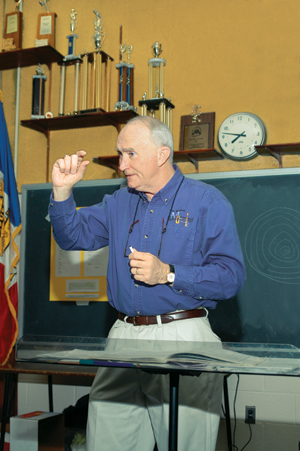 Roy C. Holder, Lake Braddock Secondary School (ret.)
Roy C. Holder, Lake Braddock Secondary School (ret.)
In attempting to answer the question concerning my greatest Midwest memory, I could discuss a memorable moment from one of the Lake Braddock Midwest concerts I conducted or one of the tremendous supportive audience responses to those performances. I could remember a set of students whose hard work made presenting such a concert possible. Maybe I could discuss one of clinics I was privileged to present or someone who afterwards asked really intriguing questions as they tried to learn as much as possible that would help them be successful. It was amazing to see the huge line of people waiting in line for one of our concerts was amazing.
It was unreal to see Fredrick Fennell, during one of our Midwest rehearsals, run across the room, grab a drumstick, and begin to pound the daylights out of a suspended cymbal while emphatically insisting, “You have to really hit it hard,” as we completed a run of his setting of Wedding Dance. I also recall our not quite two-year-old daughter saying very loudly during a John Paynter/Northshore Concert Band teaching clinic, “Those flutes are too loud!” Of course, Mr. Paynter’s smiling response when my wife apologized and offered to take her out was that the child was right and that if we could not have kids involved there was something wrong with what we were doing. (He did go on to joke that the timing of her response was probably bad parenting.)
It would be easy to choose the first time that Harry Begian or one of the other icons of the business when I was younger called me by name in the hall of the Hilton, and I realized they not only knew who I was, but that they would take the time to talk to a young teacher trying to learn how to do high-quality work.
Of course, there is sitting in concerts and clinics given by amazing people from a wide variety of backgrounds and interests from around the world or visiting an exhibit hall that always reminds me just how many aspects and types of opportunities our profession offers. Then there is just seeing old friends and meeting both true experts in various aspects of our profession and the energetic young teachers who are our future. Which brings us back to the original question – it is the people who are my favorite memory of all these Midwest Clinics. Associating with the huge number of people who believe so strongly in the importance of teaching music is what I remember and look forward to every year. Those people who are willing to go to great lengths and spend a considerable amount of time and money in the effort to share what they have learned while they learn as much as possible from others are the cornerstone of the Midwest experience. From concerts to clinics to exhibits and even necessary meetings, there is nothing quite like the annual rejuvenation of participating in the Midwest Clinic with so many people who are there to share and enjoy this great profession.
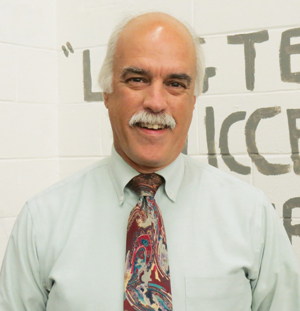 Tom Lizotte, Cape Elizabeth High School (Maine)
Tom Lizotte, Cape Elizabeth High School (Maine)
I have attended Midwest since 1989, but my first lasting memory was in 1992 hearing the Duncanville, Texas band perform Andrew Boysen’s I Am. The concert was in the main ballroom of the Hilton, the band was exquisite in a piece new to me, and I left the concert shaken, with tears in my eyes.
Midwest can’t be limited to a single memory. Each year has its own. Here are a few more:
• Frederick Fennell in his career recollection – no notes, no ums or ahhs, and perfect recall of 50 years of music making.
• Sitting between Clare Grundman and Alfred Reed at a concert.
• Seeing Ryan Kisor as a high school student performing with Wynton Marsalis.
• Arturo Sandoval with a great Texas high school band.
• Rich Matteson and his great band.
• Seeing John Paynter, Ray Cramer, and Harry Begian in action.
• Tony Garcia working magic with two middle school novice improvisers.
• George Parks and 30 UMass alumni at the Italian Village celebrating the marching band’s winning the Sudler Trophy.
• The poignancy of the first Midwest after Mr. Paynter’s and Barb Buelhman’s passing.
• H. Robert Reynolds, any year.
• My first time at the Berghoff.
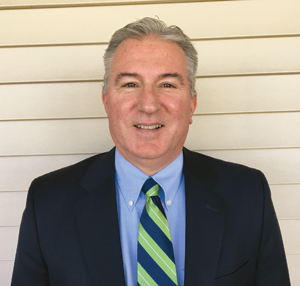 Brian Anderson, Fremont High School (Nebraska, retired)
Brian Anderson, Fremont High School (Nebraska, retired)
I have so many fond memories of The Midwest Clinic over the years that it is difficult for me to choose just one. Some personal favorites include concerts in the Grand Ballroom of the Hilton, the Midnight Special sessions, and, of course, visiting with colleagues from all over the world. One special memory was when Fred Fennell not only autographed my newly purchased full score to Lincolnshire Posy (which he had recently edited), he asked if I would like to sit down and go through some aspects of the piece, which was a genuine treat. Perhaps my favorite memory would be the Saturday morning of the 1999 clinic. Eric Whitacre and I sat down at the grand piano in the Hilton lobby (up the stairs from the Christmas Tree), and he played the musical ideas he had written that would eventually become his piece October. I was mesmerized by the beautiful and expressive music he had created and the tender loving care with which he played it. The music gave me chills then, and it continues to give me chills every time I hear the piece.
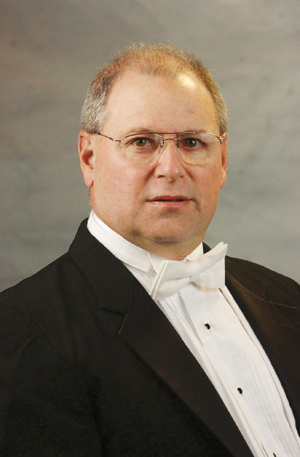 Dennis Zeisler, Old Dominion University
Dennis Zeisler, Old Dominion University
I have attended the Midwest Clinic for 30 years and defining my greatest Midwest memory is difficult. Every part of the Midwest Clinic has helped me as a teacher, performer, and conductor, but there are three events that meant so much to me.
In 2004 and 2012, the Virginia Wind Symphony, the adult group I conduct, was selected to perform at the Midwest Clinic. I was so excited for the group, many of whom had never been to Midwest. In 2015, I guest conducted Karel Husa’s Music for Prague with the United States Navy Band. As a student at Michigan and a member of the Symphony Band, I performed the piece almost one hundred times with William D. Revelli and at least twice with Karel Husa. It was such a thrill to conduct the piece at the Midwest Clinic to a capacity house. Lastly, in 2012, I was asked to join the Midwest Clinic Board of Directors, a group I have so much respect and admiration for. I have been part of the 70th Anniversary planning committee and know that this years’s Midwest will be the best yet.
